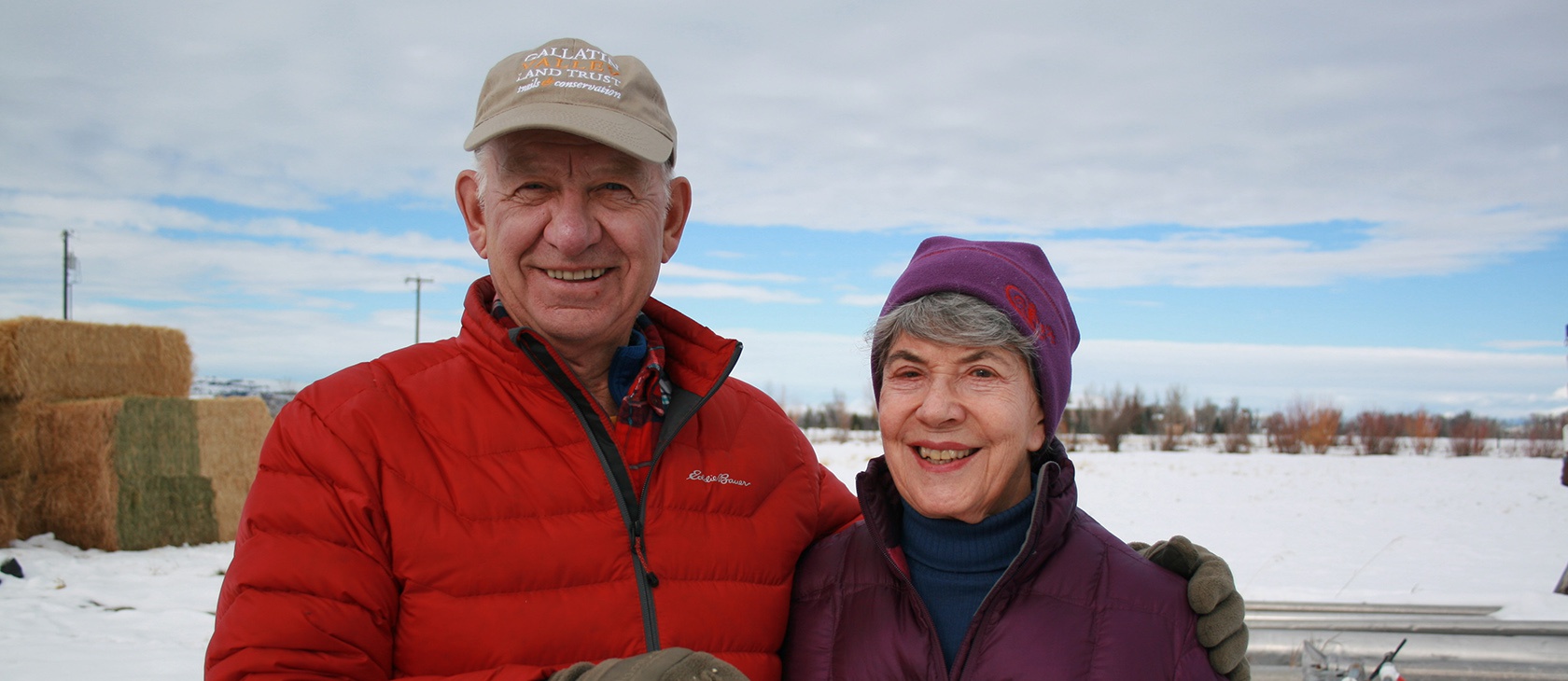Property rights, conservation and “social value”
You’ve spent the better part of a lifetime restoring, building and continually improving a prime piece of ranch land just outside Bozeman, Montana, one of the most desirable real estate markets in the West. You look around and comparable properties are fetching big premiums. Time to cash in your chips?
Not for John Baden and Ramona Marotz- Baden, two college professors turned ranchers who have taken their Enterprise Ranch out of development play by placing it in a conservation easement. The property is now reserved “in perpetuity” for agriculture and wildlife preservation.
“We had the opportunity to develop the land for multiple values,” Baden says. “Our goal with the ranch was to bring together liberty, sustainable ecology, and modest prosperity.”
Indeed, over the years the ranch in Gallatin Gateway, on the outskirts of Bozeman, has hosted outings for Warriors and Quiet Waters, a nonprofit co-founded by Baden that brings in service members from national hospitals to fish spring fed chain of trout ponds on the ranch. The Cancer Support Community, a local nonprofit, brings patients and family members to the ranch in the summer to fish the ponds. The local volunteer fire department has used the four miles of ranch trails for off-road fire truck training exercises.
Besides being handy with hay balers and other farm equipment, Baden is also a scholar-entrepreneur, having set some of the early intellectual groundwork for the free market environmental movement and was a leader in the founding of the Property and Environment Research Center in Bozeman. He currently serves as chairman and founder of the Foundation for Research on Economics & the Environment, also in Bozeman, and started up the Gallatin Writers group. So when it comes to putting real dollars into conservation projects and causes, Baden and Marotz-Baden have done just that.
Given what the prices for ranches are going for in the Bozeman market, the couple could have easily realized a significant profit in selling to developers. Enterprise Ranch would have been “super attractive” to real estate developers who could chunk it out into 40-acre “ranchettes,” Baden says. Instead, they worked with the Gallatin Valley Land Trust to voluntarily place the property in a conservation easement, paying hefty legal fees out of pocket (see main story, “Growing pains in romance lands).
The Enterprise ranch is located in the Gallatin Valley, one of the most picturesque and agriculturally productive valleys in Montana – not to mention home to some of the best trout fishing in the world. Hemmed in by four prominent Montana mountain ranges: the Bridger Gallatin, Spanish Peaks, and the Big Belt Mountains. Its recorded history goes back to the Lewis and Clark expedition. At that time, the valley was well traveled by tribes such as the Blackfeet, Crows, Flatheads, Nez Percé and others on their way to hunting grounds in the Yellowstone and Snake River valleys. The Native Americans knew the Gallatin passage as the “Valley of Flowers.” Later, a succession of settlers arrived for the fur trade, gold mining and farming.
Baden describes Enterprise as somewhat smallish by local standards. But to understand what he means by small requires some Montana context.
In 1989, cable TV magnate Ted Turner paid $21 million for the Flying D Ranch, one of the largest ranches in the state, according to news reports. Turner’s aim was to restore the land to what it looked like before the white man came and, among other things, brought in new livestock such as bison. He also placed the 177-square-mile (113,613 acres) property, just outside of Bozeman, under a conservation easement so that the land would remain unsubdivided. The land is open to guided big game hunts for deer, elk and bison.
In December, reports indicated that the 119,500-acre Diamond Cross Ranch near Birney was sold. The asking price was $64.8 million. The property was assembled by the late Mars candy heir Forrest Mars Jr., another wealthy conservationist.
When Baden bought Enterprise in 1970, there were no buildings on the property and it was suffering from years of neglect. With a lot of sweat equity, and plowing income back into the land, he built a home and barns, dug ponds, restored a spring creek and made dozens of other ranch and wildlife habitat improvements, including a fish tank he built raising rainbow and Westslope cutthroat fingerlings. At one time in the mid-1980s, the couple was raising as many as 1,250 ewes, rams and lambs on the ranch. The ranch remains a prolific producer of alfalfa hay under irrigation and dryland grass, some they feed to grass fed steers and lambs on Enterprise Ranch, with much of it trucked off to cattle operations.
It is not uncommon to see herds of elk and mule deer traversing Enterprise Ranch not far from the trout ponds, barns and hay fields. Now, with the property set aside for conservation, those wild herds should have plenty of room to roam for years to come.




